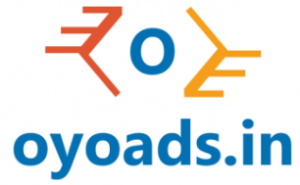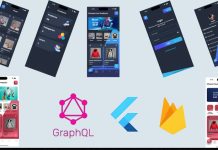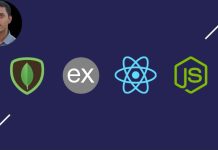Note:
If you guys are getting coupon expired or course is not free after opening the link, then it is due to the fact that course instructors provide only few hundreds or thousands of slots which get exhausted. So, try to enroll in the course as soon as it is posted in the channel. The Coupons may expire any time for instant notification follow telegram channel


Why should you consider enrolling on this Complete Academic Course on Enterprise Application Development?
-
The course instructor is a lecturer teaching Enterprise Application Development for 3+ years.
-
The course instructor is a former lead software engineer who developed enterprise applications for the Scandinavian region for 3+ years.
-
This course is designed in 2022 by International-level benchmarking of the lessons and hands-on activities, so it covers all the topics which are included in almost any university-level taught lecture module.
-
This course covers everything you need to master the subject without enrolling on other parts/courses related to the topic.
-
This course includes lecture notes/slides as downloadable materials.
-
You will be part of the 8000+ student community already in my courses.
I invite you to check the free provided videos and course outline. Then, if you are happy, enrol with this one and only Enterprise Application Development course.
Important: This is not a programming course module. The main objective of this course is to give an overall and complete understanding of Enterprise Software and Design Patterns. However, to explain design patterns, Java is used as the programming language of choice. But you can apply these concepts to any object-oriented programming language.
All-in-one Complete Academic Course: Enterprise Application Development Outline
Chapter 01: Introduction
1.1 Introduction to Enterprise Application Development
1.2 Examples for Functional Areas of Enterprise Application Development
1.3 Advantages and Disadvantages of Enterprise Software
1.4 Nature of Enterprise Software
1.5 Case Study Activity
Chapter 02: Enterprise Application Architecture
2.1 Introduction to Enterprise Application Architecture
2.2 Example Scenario – What can happen without an Architecture
2.3 Overview of the Enterprise Architecture
2.4 What can go wrong without an Enterprise Architecture
2.5 Layered Architecture – (Client-Server)
2.6 Client-Server Architecture Explained Further
2.7 Layered Architecture – (Multi-tier)
2.8 MVC Architecture
2.9 Sample MVC Code Explanation with Live Debugging
2.10 Component-based Architecture
2.11 Summary of Enterprise Architectures
Chapter 03: Introduction to Web Services
3.1 Introduction to Service Oriented Architecture (SOA)
3.2 Characteristics of Service-Oriented Architecture
3.3 Hands-on Session Web Services – Development Environment Setup
3.4 Hands-on Session – Introduction to Restful Web Services and JSON
3.5 Hands-on Session – Implementing a Restful GET API with Java Spring Boot
Chapter 04: Frameworks for Enterprise Application Development
4.1 Importance of Frameworks
4.2 Example for Frameworks – Bootstrap
4.3 What is a Framework
4.4 Importance and Characteristics of Frameworks
Chapter 05: Design Patterns
5.1 Introduction to Design Patterns
5.2 Design Patterns Types
5.3 Singleton Design Pattern
5.4 Singleton Design Pattern Hands-on Session
5.5 Factory Design Pattern
5.6 Factory Design Pattern Explained Further
5.7 Factory Design Pattern Hands-on Session
5.8 Decorator Design Pattern
5.9 Decorator Design Pattern Explained Further
Chapter 06: Software Development Lifecycle (SDLC)
6.1 Introduction to Software Development Methodologies
6.2 Agile Scrum Explained
6.3 Agile Scrum in IT Industry (short practical review)
6.4 Software Development Methodologies – Waterfall Method
6.5 Prototyping, Incremental Development, RAP, RUP and Value Centric Approach
Chapter 7: Conclusion
7.1 Web Application Security – Malware
7.2 Levels of Enterprise Application Security
7.3 Introduction to OWASP TOP 10
7.4 SQL Injection Practical Demonstration, XSS and Standards
Chapter 8: Conclusion
8.1 Summary










![Passive Income: Create & Sell Online Courses [Full Course]](https://oyoads.in/wp-content/uploads/passive-income-create-sell-online-courses-full-course_661cb1a9a14ff-218x150.jpeg)
![AI for Business Strategy & Planning [Masterclass]](https://oyoads.in/wp-content/uploads/ai-for-business-strategy-planning-masterclass_661cb19898162-218x150.jpeg)











![[100% Free]Python Bootcamp 2020 Build 15 working Applications and Games (31.5 Hours)](https://oyoads.in/wp-content/uploads/2020/05/Python-Bootcamp-2020-Build-15-working-Applications-and-Games-1-100x70.jpg)

![[100% Free]Java Programming: Complete Beginner to Advanced](https://oyoads.in/wp-content/uploads/2020/05/IMG_20200519_054150_522-100x70.jpg)
